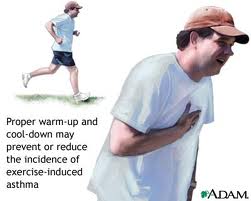Pages
Health Care News
Categories
- Asthma education
- Autism
- Canadian Health&Care Mall
- Cardiac function
- Critical Care Units
- Follicle
- Health
- health care medical transport
- health care programs
- Health&Care Professionals
- Hemoptysis
- Hormone
- Isoforms
- Nitroglycerin Patches
- Profile of interleukin-10
- Progesterone
- Pulmonary Function
- Sertoli Cells
- Theophylline
- Tracheoesophageal Fistula
Category Archives: Asthma education
Asthma education, action plans, psychosocial issues and adherence: ACTION PLANS (4)
 If peak flows are to be used as a basis of action, the criterion of a 30% decrease in PEF to define an acute exacerbation needs review. Changes in peak flow are less sensitive than deterioration in symptoms during an acute exacerbation and are less sensitive than changes in forced expiratory volume in 1 s . In the study of Chan-Yeung et al , only 27% of subjects had a decrease in PEF of more than 30% from baseline during an acute exacerbation. Similarly, Charlton et al concluded that patients with a symptom-based action plan implemented higher doses of inhaled corticosteroids earlier in the attack and were, thus, more likely to respond than patients who waited until their peak flow fell to 70% of normal. (more…)
If peak flows are to be used as a basis of action, the criterion of a 30% decrease in PEF to define an acute exacerbation needs review. Changes in peak flow are less sensitive than deterioration in symptoms during an acute exacerbation and are less sensitive than changes in forced expiratory volume in 1 s . In the study of Chan-Yeung et al , only 27% of subjects had a decrease in PEF of more than 30% from baseline during an acute exacerbation. Similarly, Charlton et al concluded that patients with a symptom-based action plan implemented higher doses of inhaled corticosteroids earlier in the attack and were, thus, more likely to respond than patients who waited until their peak flow fell to 70% of normal. (more…) Asthma education, action plans, psychosocial issues and adherence: ACTION PLANS (3)
Patient adherence needs to be considered in relation to peak flow monitoring. Selected patients reliably monitor peak flows over a limited period . However, these results cannot be generalized to patients with asthma who are based in the community rather than a hospital clinic , in whom manual records were markedly deficient compared with electronic records. As well as factitious readings, there were errors in reading and transcribing; the completeness of the record declined from the first to the third week. (more…)
Asthma education, action plans, psychosocial issues and adherence: ACTION PLANS (2)
 Peak flow monitoring: Measurement of peak expiratory flow (PEF) provides a safe, simple, reliable, available method of quantitatively assessing the degree of airflow obstruction.
The need for such a quantitative assessment was based on earlier studies demonstrating that a significant proportion of patients with asthma poorly perceived worsening airflow obstruction . However, much of the initial enthusiasm for peak flow monitoring has been dampened by subsequent experience. (more…)
Peak flow monitoring: Measurement of peak expiratory flow (PEF) provides a safe, simple, reliable, available method of quantitatively assessing the degree of airflow obstruction.
The need for such a quantitative assessment was based on earlier studies demonstrating that a significant proportion of patients with asthma poorly perceived worsening airflow obstruction . However, much of the initial enthusiasm for peak flow monitoring has been dampened by subsequent experience. (more…) Asthma education, action plans, psychosocial issues and adherence: ACTION PLANS (1)
The specific impact of action plans on asthma morbidity is difficult to determine. Although their introduction has been associated with reduced morbidity indexes, only selected patient groups were studied, and, thus, the results may not be generalizable. Control groups are often lacking, and the extent to which improvements are due to other factors, such as regular or higher doses or more appropriate use of inhaled steroids , is difficult to assess. Action plans vary, and no single plan is likely to be suitable for every patient; it must be feasible and applicable to the indvidual patient. (more…)
Asthma education, action plans, psychosocial issues and adherence: ASTHMA EDUCATION (8)
 Finally, the likelihood of a desirable outcome depends on the patient’s stage in the continuum of behaviour change ; different messages are appropriate at different stages and a strong argument in favour of an individualized approach. However, personal education does not guarantee an individualized approach, especially if the same unmodified information is delivered to every patient in the same manner. (more…)
Finally, the likelihood of a desirable outcome depends on the patient’s stage in the continuum of behaviour change ; different messages are appropriate at different stages and a strong argument in favour of an individualized approach. However, personal education does not guarantee an individualized approach, especially if the same unmodified information is delivered to every patient in the same manner. (more…) Asthma education, action plans, psychosocial issues and adherence: ASTHMA EDUCATION (7)
On the basis of current evidence, it is not possible to determine the most effective format of patient education. There is some limited evidence that group education may be more effective for some outcomes , but a recent meta-analysis failed to provide a conclusive answer . Certainly, group education provides social support, allows interaction with others with similar medical problems, and may help to validate the patients’ experiences and to solve some selfmanagement problems. (more…)
Asthma education, action plans, psychosocial issues and adherence: ASTHMA EDUCATION (6)
Timing, setting and form of education: There is insufficient evidence to decide upon the optimal timing, delivery setting and form of asthma education . Initiating the educational strategies while the patient is still in hospital has advantages. The individual has already been identified as being at ‘high risk’ for severe life-threatening asthma or death , they are accessible and (arguably) amenable to intervention, and it is possible to initiate a therapeutic relationship involving the patient’s physician. (more…)
Asthma education, action plans, psychosocial issues and adherence: ASTHMA EDUCATION (5)
 A variety of psychological, health-care and socioeconomic factors had powerful and differential influences on self-management knowledge and behaviour (Figure 2). However, there was encouraging evidence that the factors associated with appropriate educational initiatives and good quality of ongoing medical care were positively associated with both knowledge and behaviour scores, providing support for current asthma educational initiatives. Self-management errors: Despite the widespread use of asthma education, patients commonly make serious selfmanagement errors during an acute attack, including no or delayed use of oral corticosteroids and/or no or delayed summoning of emergency services . (more…)
A variety of psychological, health-care and socioeconomic factors had powerful and differential influences on self-management knowledge and behaviour (Figure 2). However, there was encouraging evidence that the factors associated with appropriate educational initiatives and good quality of ongoing medical care were positively associated with both knowledge and behaviour scores, providing support for current asthma educational initiatives. Self-management errors: Despite the widespread use of asthma education, patients commonly make serious selfmanagement errors during an acute attack, including no or delayed use of oral corticosteroids and/or no or delayed summoning of emergency services . (more…) Asthma education, action plans, psychosocial issues and adherence: ASTHMA EDUCATION (4)
In a recent systematic review on behalf of the Cochrane collaboration, Gibson et al found that interventions that consisted of education only did not bring about improvements in morbidity indexes. Conversely, interventions in which education was combined with self-monitoring and/or regular medical review and/or a written action plan improved a variety of health outcomes. Thus, asthma education should not be provided in isolation but as part of an integrated program of good quality care. Determination of the effects of specific components of educational programs has proved difficult. (more…)
Asthma education, action plans, psychosocial issues and adherence: ASTHMA EDUCATION (3)
 Efficacy: Following a meta-analysis of 11 randomized clinical trials of self-management teaching programs, Bernard-Bonnin et al concluded that educational programs improve knowledge but do not reduce morbidity, consistent with the results of the randomized studies conducted by Garrett et al and Cote et al . These data, as well as those showing the discrepancy between knowledge and behaviour , indicate that relying on an assessment of knowledge as the sole outcome measure may grossly overestimate the effectiveness of an educational strategy. (more…)
Efficacy: Following a meta-analysis of 11 randomized clinical trials of self-management teaching programs, Bernard-Bonnin et al concluded that educational programs improve knowledge but do not reduce morbidity, consistent with the results of the randomized studies conducted by Garrett et al and Cote et al . These data, as well as those showing the discrepancy between knowledge and behaviour , indicate that relying on an assessment of knowledge as the sole outcome measure may grossly overestimate the effectiveness of an educational strategy. (more…) 